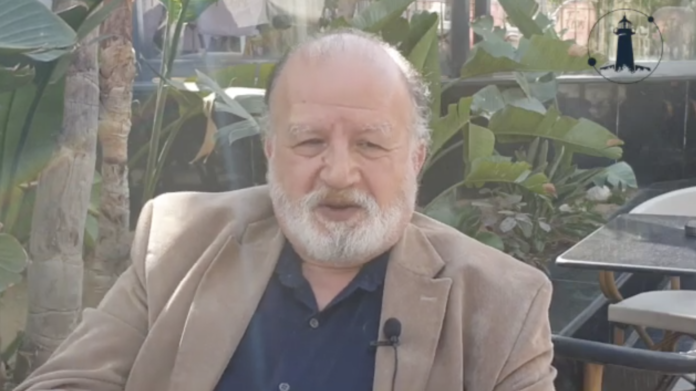One of the essential steps to promote healthy ageing in the MENA region is to develop an accurate evidence base about the region’s specific cultural and social context. Hence, building local and regional multi-disciplinary cadres’ research capacity is a pre-request to developing tailored policies and practice interventions. As part of the MENARAH engagement workshops and activities that took place in 2022, we discussed the matter with Professor Hassan El-Fawal, American University in Cairo.
Professor El-Fawal highlights that healthy ageing should be interpreted with a nuanced cultural and religious approach. From his point of view, one of the main challenges confronting ageing research is education. He explains that this relates to the education of researchers and practitioners but, more importantly, that of older people and their informal carers. Professor El-Fawal explains that there are considerable strides to be made in raising awareness of what constitutes healthy ageing behaviour that might appear counterintuitive to the norms and practices related to showing ‘respect’ to older people.
Healthy ageing is not the absence of disease, but it is ageing with dignity, which is associated with independence combined with functionality. He criticises how many people try to show their love and respect to older people by not allowing them to continue with their independent lives. While they might be doing so out of respect, they are effectively implying that they can no longer make their own decisions or look after themselves despite most older people having lived a proactive life before reaching a certain age or retiring. He highlights that our views of respecting older people should change to empower individuals to remain active and independent. Professor El-Fawal emphasises that such concepts need to be embedded within a paradigm that views ageing as a continuation of the life course. Hence, we should pay attention to younger people to prepare them for healthy lives. He feels that in the region, the two ends of the life course are often neglected in the educational process.
He further elaborates that specific evidence is needed to inform policies that promote healthy ageing. It is thus paramount to develop a well-equipped cadre capable of collating, understanding, interpreting and disseminating ageing-specific evidence. They should also be able to translate and communicate such knowledge to older people and their family members regardless of their socio-economic or educational status.
Watch extracts from an interview with Professor El-Fawal:
Founder and Director
Shereen Husseinis a Health and Social Care Policy professor at the London School of Hygiene and Tropical Medicine (LSHTM), United Kingdom.
Shereen Founded the MENARAH Network in 2019, through an initial grant from the Global Challenge Research Fund, UKRI. She is a medical demographer with expertise in ageing, family dynamics, migration and long-term care systems. Shereen regularly collaborates with the United Nations, the World Health Organisation and the World Bank in policy and research focused on ageing in the Middle East and North Africa Region.
Shereen received her undergraduate degree in statistics and a postgraduate degree in computer science at Cairo University. She completed an MSc in medical demography at the London School of Hygiene and a PhD in quantitative demography and population studies at the London School of Economics and Political Science, United Kingdom.



